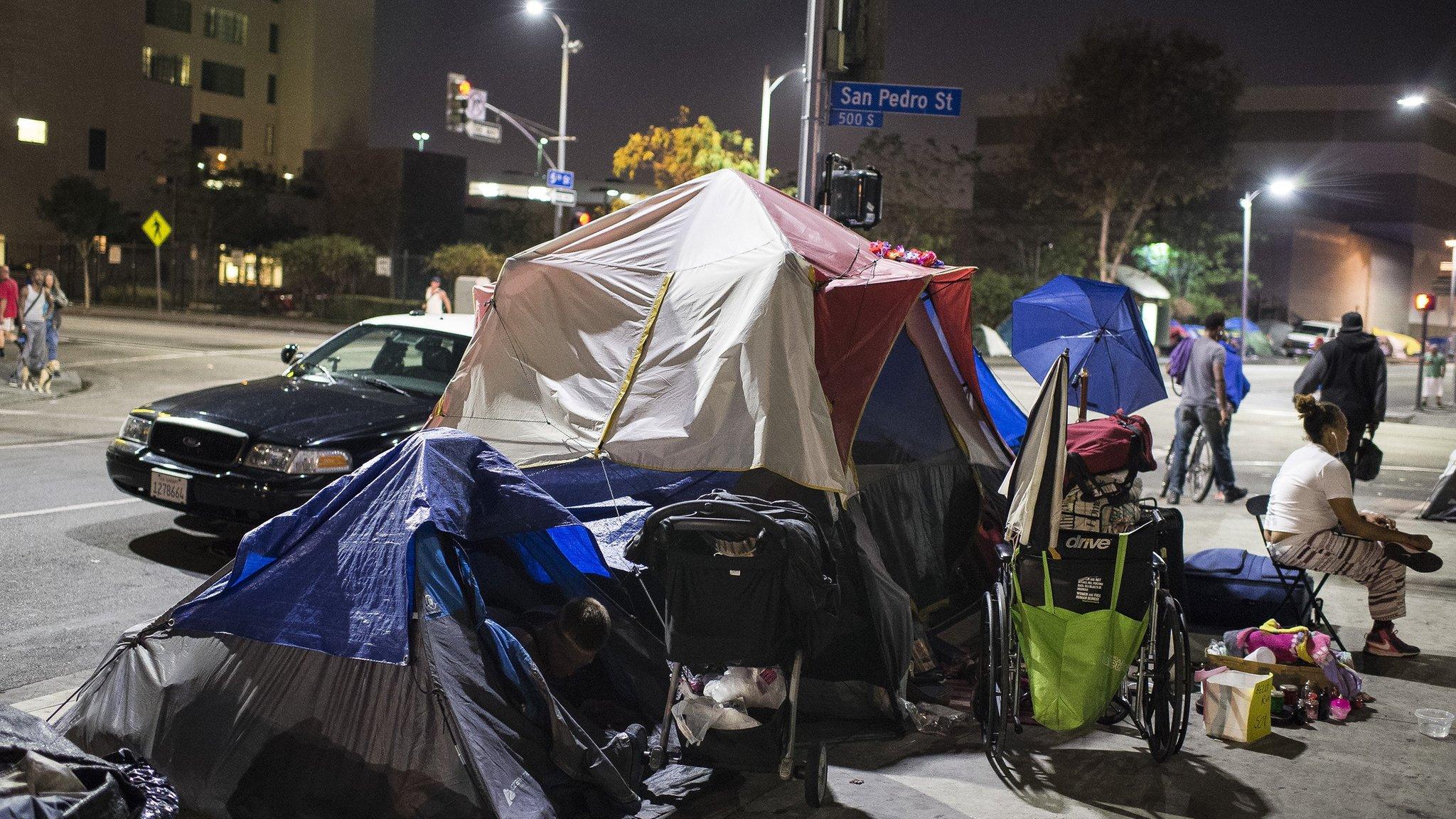Coronavirus: Rough sleepers in Middlesbrough tell of hardship
- Published
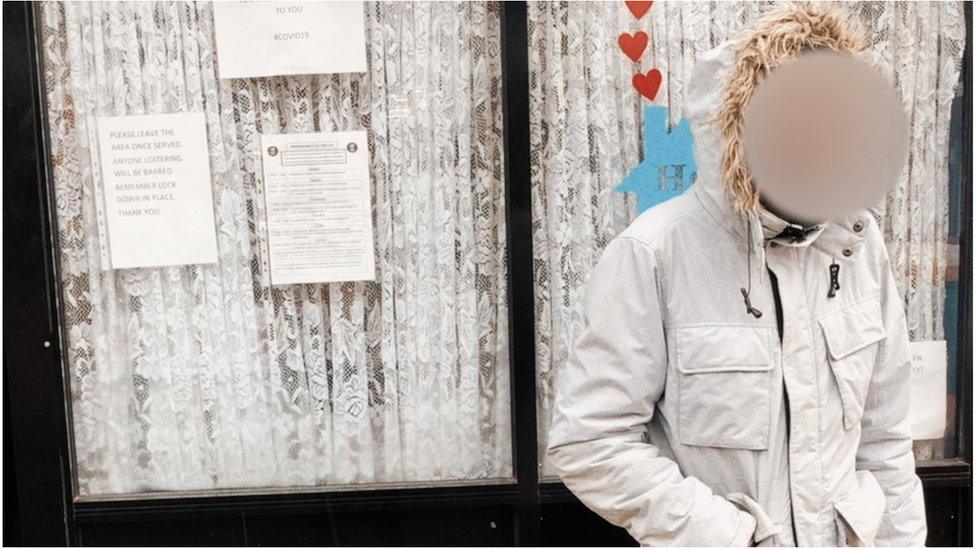
Longshank is due in court charged with a drugs offence
Substance abuse, court dates and trying to stay warm are greater problems than the Covid-19 pandemic, rough sleepers in Middlesbrough have said.
A 39-year-old man, who did not want to be named, said he has been sleeping rough for about a year.
"I argued with my girlfriend and she kicked me out. I don't get to see my kids or anything, it's hard, it's not by my own doing," he said.
Middlesbrough Council said the spread among rough sleepers had been low.
The man said coronavirus was the least of his problems, adding: "First of all I need to get some accommodation.
"You turn to drugs, you turn to alcohol. It's not the solution but it eases the pain. I'm trying to get into a rehab but even that's difficult with this Covid."
Rough sleepers in Middlesbrough tell of hardship
Down the road two men were living in a tent. They were drenched from a night of heavy rain. One had a wet sleeping bag wrapped around his shoulders for warmth.
They said they were housed in April, but walked out as the bedsit they were given "wasn't fit for a human". It is unclear who the provider was.
In April, the government "redoubled its efforts" to house rough sleepers and gave £3.2m to local authorities.
The attempt to lower the spread of Covid-19 among people without permanent accommodation was welcomed by homeless charities.
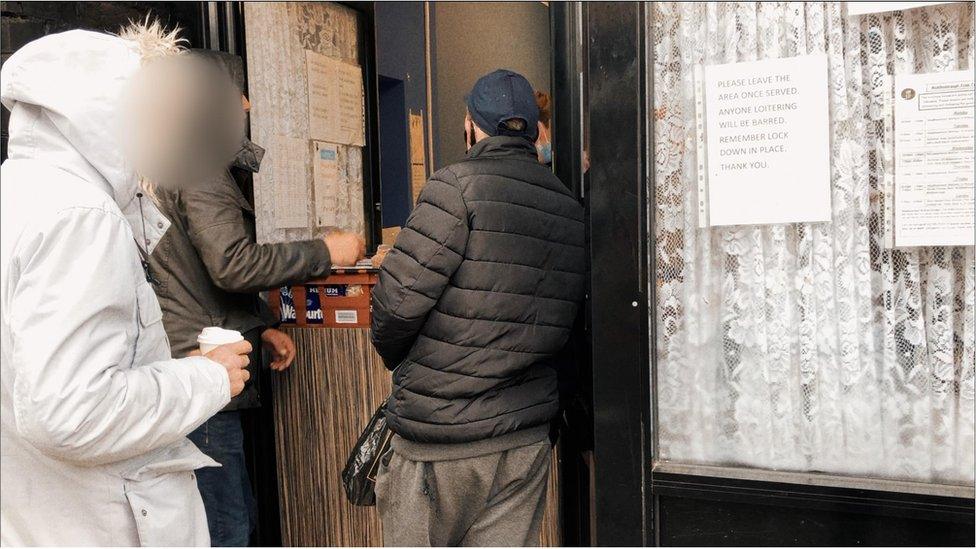
Middlesbrough's Homeless Cafe supports people in the town
Middlesbrough Council received £175,750 from the government, allowing it to get about 90 people into temporary accommodation. The pre-pandemic average was about 25 people.
A successful bid to the Ministry of Housing will see them receive a further £195,000 which would be spent mainly on helping people gain access to the private rented sector.
But the council said that without more funding, it would be hard to sustain the number of people currently in temporary accommodation.
Funding played a huge role in combating rough sleeping, and the shock of the pandemic was enough to encourage some disenfranchised people to finally engage with support.
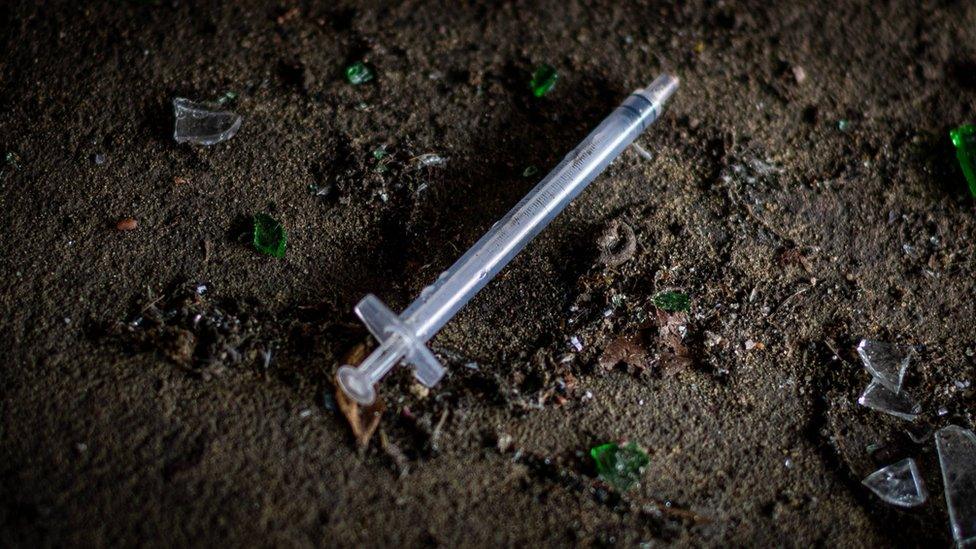
Discarded needles and syringes are easy to find
However, for some people with complex needs, a roof over their head is not the end of their problems.
About 10 of the 90 people housed in April have "drifted" back on to the street.
Longshank, as he wants to be known, is in his late 40s and has been sleeping rough on and off for almost five years.
Alcohol has been a long-standing issue for him, but he turned to heroin when his wife of 31 years passed away.
Last year, he described what life was like for a rough sleeper. Despite having a crippling opiate addiction and sleeping in a town-centre car park, he said at the time: "It's not all doom and gloom, we have a laugh."

LOCKDOWN LOOK-UP: The rules in your area
THREE TIERS: How will the system work?
SOCIAL DISTANCING: Can I give my friends a hug?
PAY-PACKET SUPPORT: What will I be paid under the new scheme?

Speaking outside Middlesbrough's Homeless Cafe, he admitted his attitude has shifted.
"Things have gotten worse. I've never been so depressed," he told the BBC's Unusual Times podcast.
"To be honest, I couldn't care less if I caught [coronavirus] or not. It'd be doing me a favour."
He gave up the accommodation he was given because he says it was too hard to be in a room with no television, no radio and no friends around him.
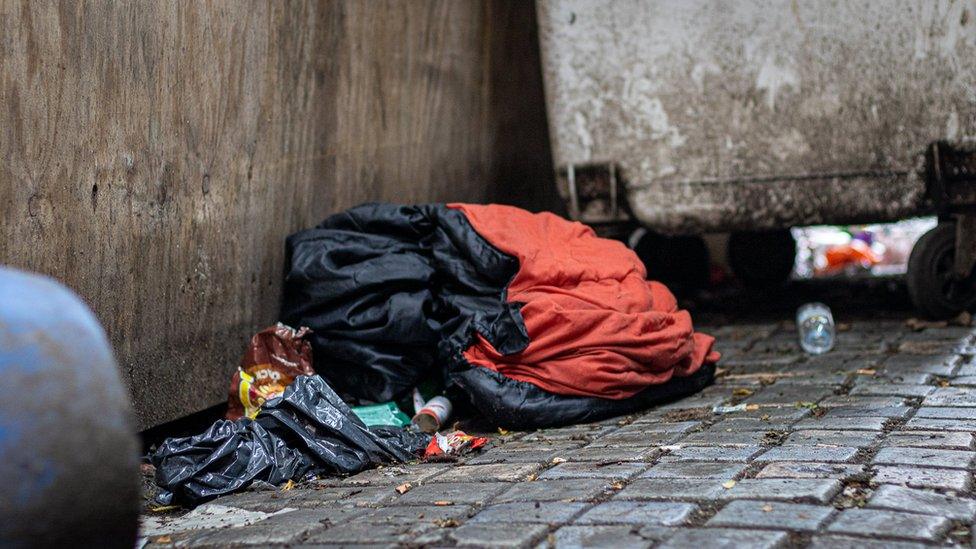
People on the streets try to find shelter where they can
Susan Gill runs the cafe and said many of the people she supports were not even aware of coronavirus for up to month after it began tearing through the world.
"They were shocked, petrified. I remember one man asking me if you could die from it - I said 'not with me looking after you, love'."
Middlesbrough Council's homeless lead Deb Cochran said the spread of coronavirus among rough sleepers has been very low, with people able to isolate when showing symptoms.
But with Middlesbrough having a rate of 289 cases per 100,000 people in the week to 17 October, it is an issue which will continue to affect the town.

Follow BBC North East & Cumbria on Twitter, external, Facebook, external and Instagram, external. Send your story ideas to northeastandcumbria@bbc.co.uk, external.
- Published1 July 2019
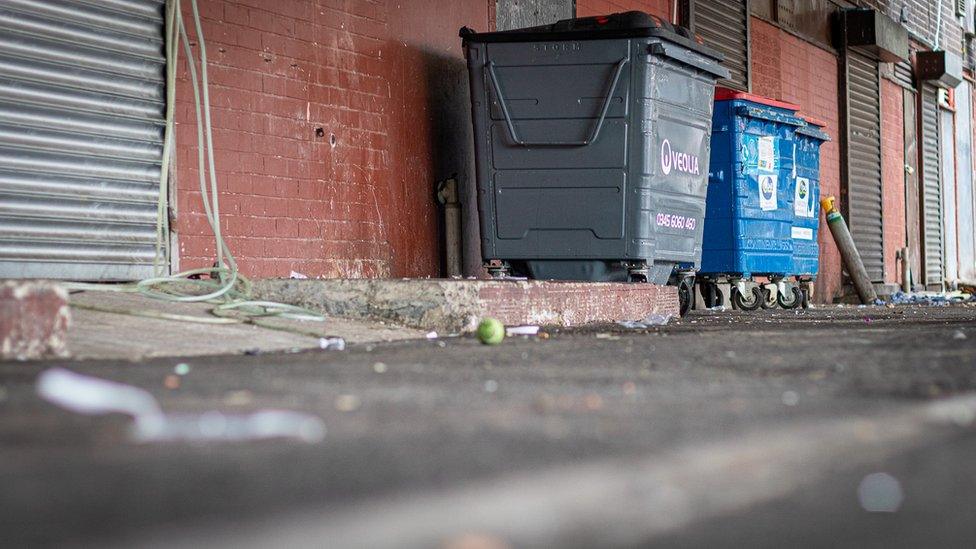
- Published29 January 2019
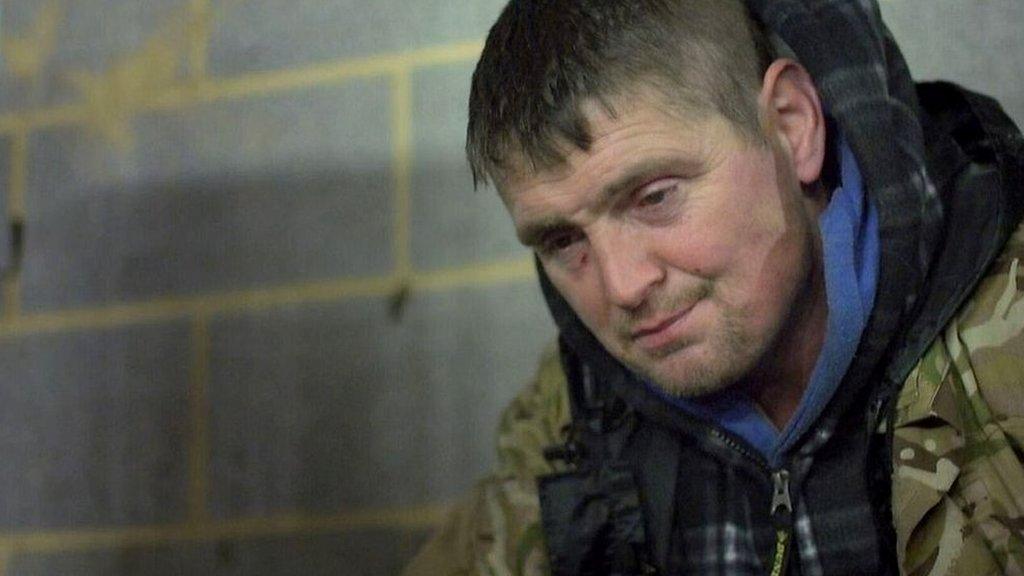
- Published22 November 2016
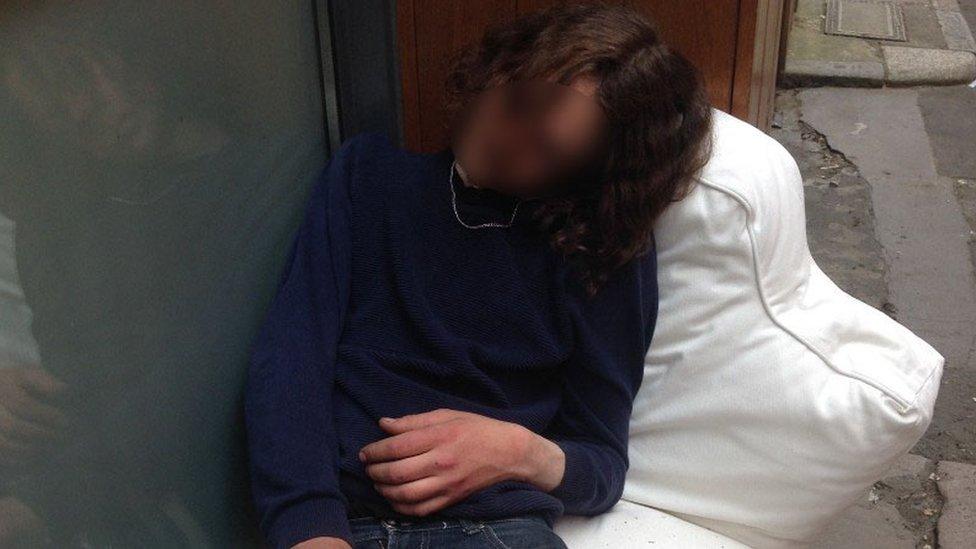
- Published7 October 2015
